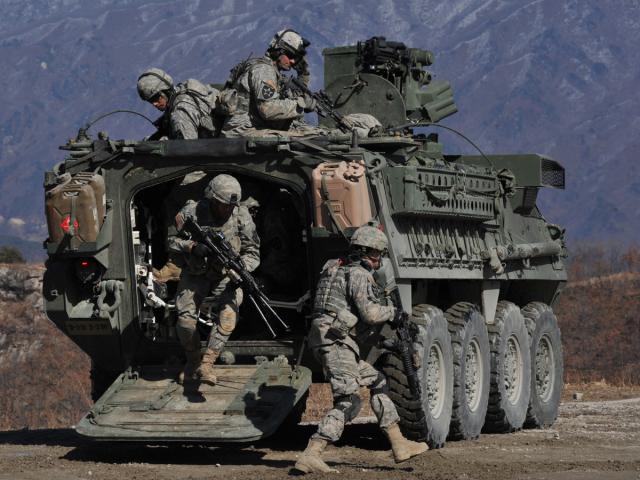The South Korean and U.S. militaries are well prepared to defend South Korea should North Korean provocations continue, the top U.S. military commander posted in the region told Congress today.
Testifying before the Senate Armed Services Committee here, Army Gen. Walter “Skip” Sharp, commander for United Nations Command, Combined Forces Command and U.S. Forces Korea, said South Korean and U.S. military leaders have been working to hone their defenses and are ready to effectively respond to an array of North Korean provocations.
“We have been working on a whole range of possible provocations from North Korea,” Sharp said. If North Korea should stage an act of provocation or aggression, he said, then South Korea “will immediately strike back in a proportionate self-defense manner. I do believe we are prepared.”
Sharp cited North Korea’s sinking of the South Korean navy frigate Cheonan in March 2010 that killed 48 sailors, and the November artillery barrage on Yeonpyeong Island from North Korea that killed two South Korean servicemembers and wounded others, including some civilians.
These attacks, along with North Korea’s continuing development of nuclear weapons and ballistic missile capabilities have strengthened the South Korean-U.S. alliance, Sharp said. The alliance, he emphasized, is fully prepared to deter North Korean aggression.
The South Korea-U.S. alliance “continues to deter a North Korea that threatens both regional and global peace and security,” the general said. “Maintaining this preparedness is accomplished through the development and the refinement of our bilateral plans to deter and defeat provocations — attacks like we saw last year — while maintaining the ability to respond to other destabilizing conditions.”
U.S. Pacific Command Commander Navy Adm. Robert F. Willard, who testified along with Sharp, added that North Korea’s ballistic missile and nuclear efforts are helping the rogue nation become more than just a threat to its neighbor to the south.
“I do agree that North Korea is becoming a direct threat to the United States,” Willard said, noting that North Korea’s ballistic missile programs are working toward an intercontinental capability.
“It becomes an international threat and, for sure, a potential future threat to the United States,” the admiral said.
Willard said the international community is becoming increasingly impatient with North Korea’s unpredictable and hostile behavior. It’s important that the People’s Republic of China realize the international community’s impatience with North Korea, he said, noting that China is North Korea’s only ally by treaty in the region.
Key to ending North Korea’s weapons development and a potential nuclear and ballistic arms race in the region is productive dialogue with China, Willard explained.
“I think it’s appropriate that [China] understands the United States’ impatience and recognize that what is occurring on the Korean Peninsula is not static or stable,” the admiral said. “Rather, we have seen an advancing nuclear capability being developed in the midst of what are very conventional provocations.”
Regional talks with China are focused on making it clear to leaders in Beijing that South Korea is fed up with North Korea’s bellicose actions.
“The situation on the Korean Peninsula has changed; both in South Korea and their unwillingness to tolerate the continued provocations that have become deadly, as well as the impatience of the international community over the nuclearization piece,” Willard said. “China’s understanding of the acuteness of both of those things is an important factor in generating what influence they can exhort over Pyongyang in order to change this.
“We have a significant challenge on the Korean Peninsula – one that we cannot allow to fester any longer,” he added.










